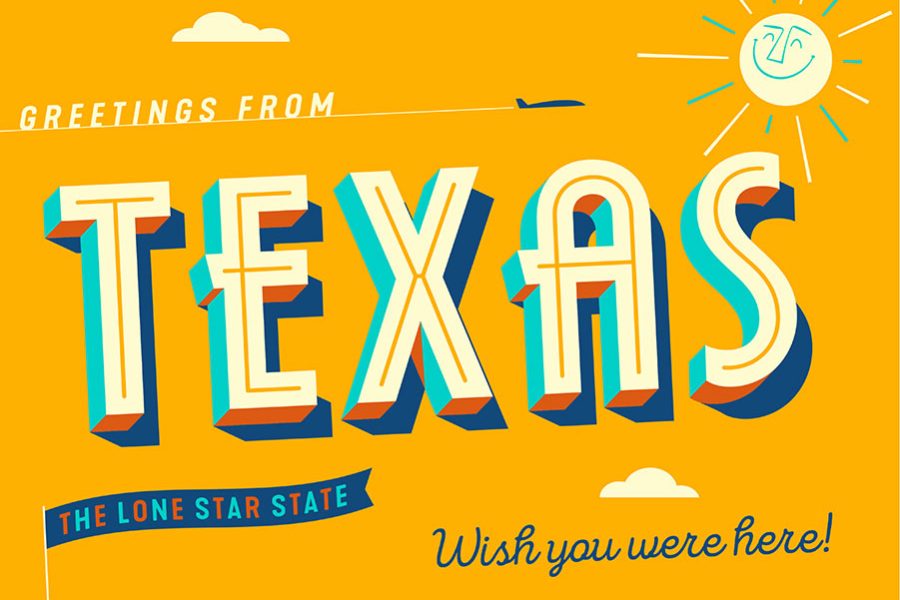- Navigator
- Industry Analytics and Strategy
- Retail, Services, and Accommodations
 Flowers are blooming, long, colorful dresses are flowing in the spring breeze, and linen and seersucker suits are worn in the sunshine. This can only mean one thing: It is wedding season. My favorite time of the year.
Flowers are blooming, long, colorful dresses are flowing in the spring breeze, and linen and seersucker suits are worn in the sunshine. This can only mean one thing: It is wedding season. My favorite time of the year.
This year is extra special because my fiancé and I are starting to plan our own June 2025 wedding. In addition, my colleague, Connor, is in the midst of planning his September 2024 wedding, and we have been discussing the where, who, and how much for the big and small details of our weddings over multiple coffee chats. These chats then inspired Connor and me to dive deeper into the economic side of the wedding industry.
Average Cost of a Wedding at a National Level
The average cost of a wedding varies depending on the state, venue, number of guests, type of food and drinks, etc. Across the United States, the average total cost of a wedding ranges from $14,500 to $50,000.
States with the highest average cost are primarily in the Northeast. Rhode Island ranks number one with the highest average wedding cost of $49,207, while weddings in Alaska average approximately $14,444.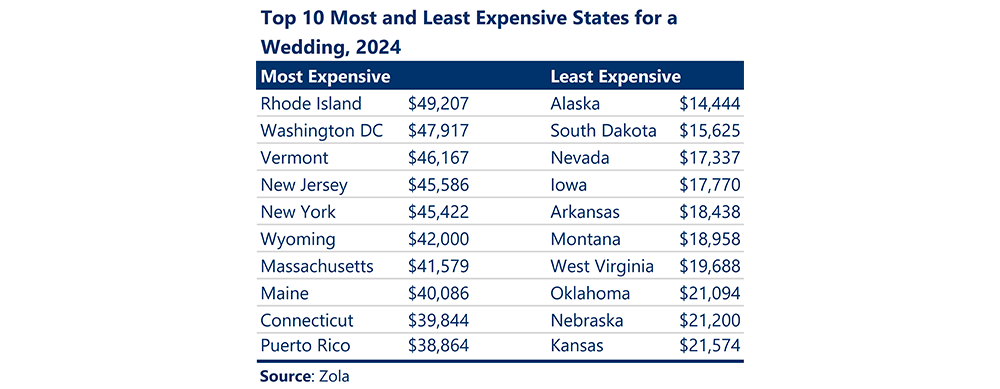
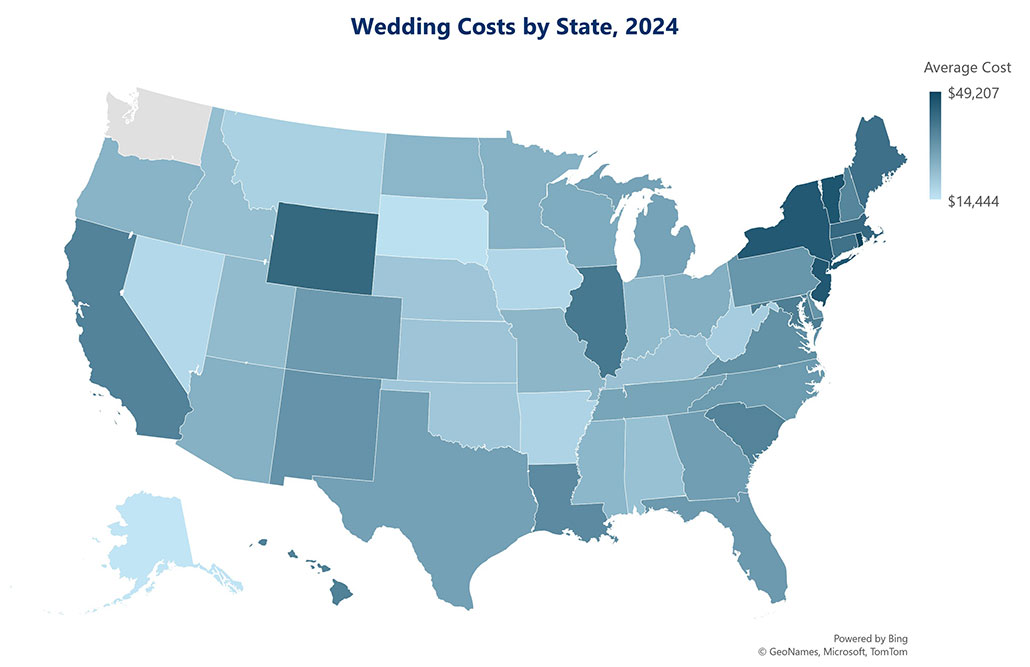 A different way to look at the average cost of a wedding is by its size because the number of guests ultimately dictates a large portion of the budget. A more intimate wedding (less than 100 people) averages between $11,700 and $25,000, while larger weddings require a larger budget ranging from $34,000 to $55,000.
A different way to look at the average cost of a wedding is by its size because the number of guests ultimately dictates a large portion of the budget. A more intimate wedding (less than 100 people) averages between $11,700 and $25,000, while larger weddings require a larger budget ranging from $34,000 to $55,000.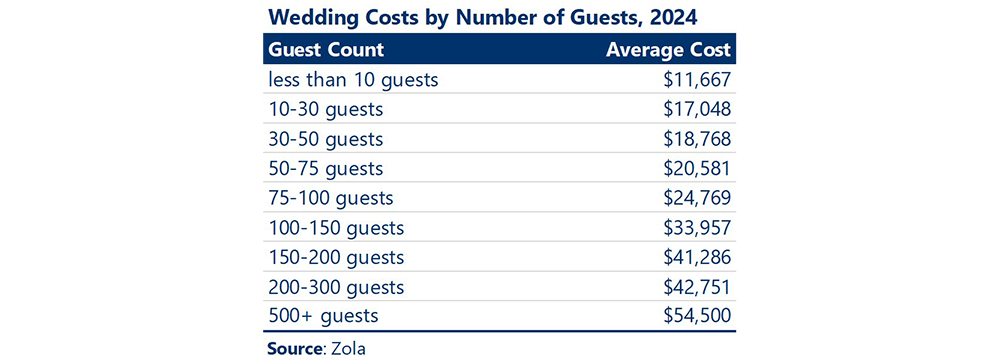
What Drives Wedding Expenses?
Wedding expenses are primarily spent in 11 categories. As expected, the venue, catering, and band/DJ are the biggest wedding expenses. The average cost for a wedding venue ranges from $6,500 to $12,000, while catering ranges from $6,500 to $10,000, equaling approximately half of an average wedding budget.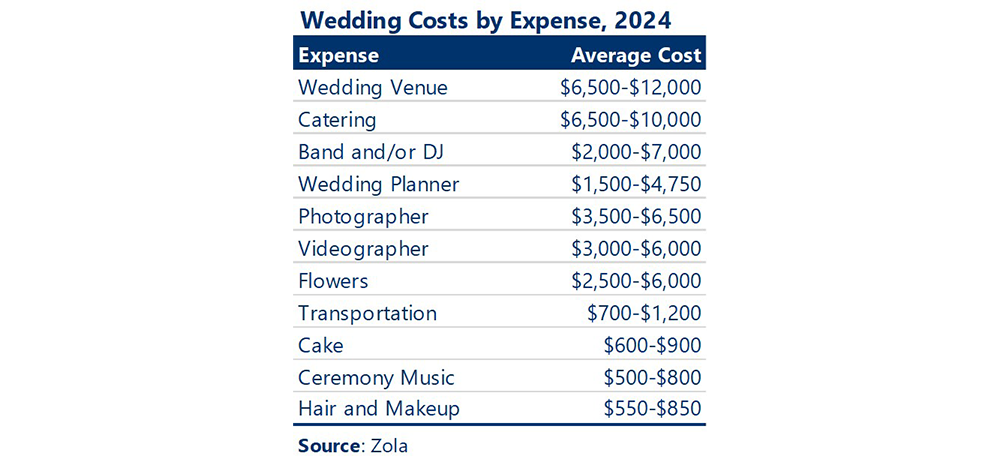
Wedding Industry Occupation Trends
We used the 11 categories that people are primarily spending their wedding budgets on as a foundation to then look at occupation trends across the wedding industry. The highest job growth from 2018-2023 were Chefs and Head Cooks (29%), Disc Jockeys (22%), and Bakers (19%). These growing occupations align with what people spend most of their budget on for their weddings (catering and a band/DJ).
Occupations with job declines from 2018-2023 are Tailors, Dressmakers, and Custom Sewers (-17%), Musicians and Singers (-5%), and Food Servers, Nonrestaurant (-3%).
In recent years, there has been a shift towards renting and thrifting wedding wear with an eye on sustainability and affordability and less emphasis on each person in the wedding party wearing the same suit or dress. This trend could account for a decrease in the Tailors, Dressmakers, and Custom Sewer occupations.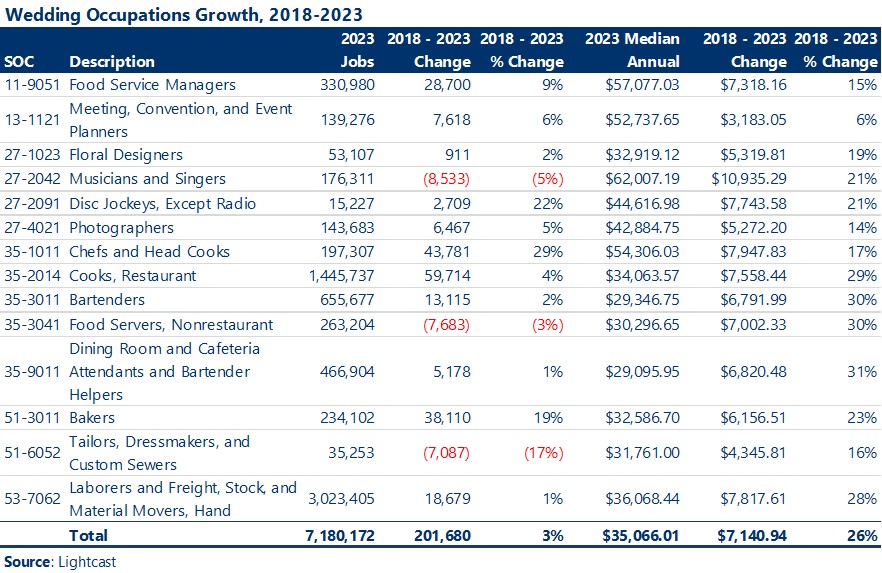
What Does This Mean for Economic Development?
As wedding budgets continue to increase year-over-year, the occupations most closely associated with weddings continue to benefit, having seen a wage increase of 26% since 2018 (compared to a 10% increase across all occupations in the US). The wedding industry also boasts low barriers to entry and can be an opportunity for people who are newly joining the workforce or changing careers. Of the 14 wedding occupations listed in the table below, nine occupations require no formal education credentials, 11 require no previous work experience, and nine require either no, or only short-term, on-the-job training.
Connecting diverse populations to occupations, building career pathways, and upskilling people can meet the growing needs in the wedding industry while developing people’s career along the way.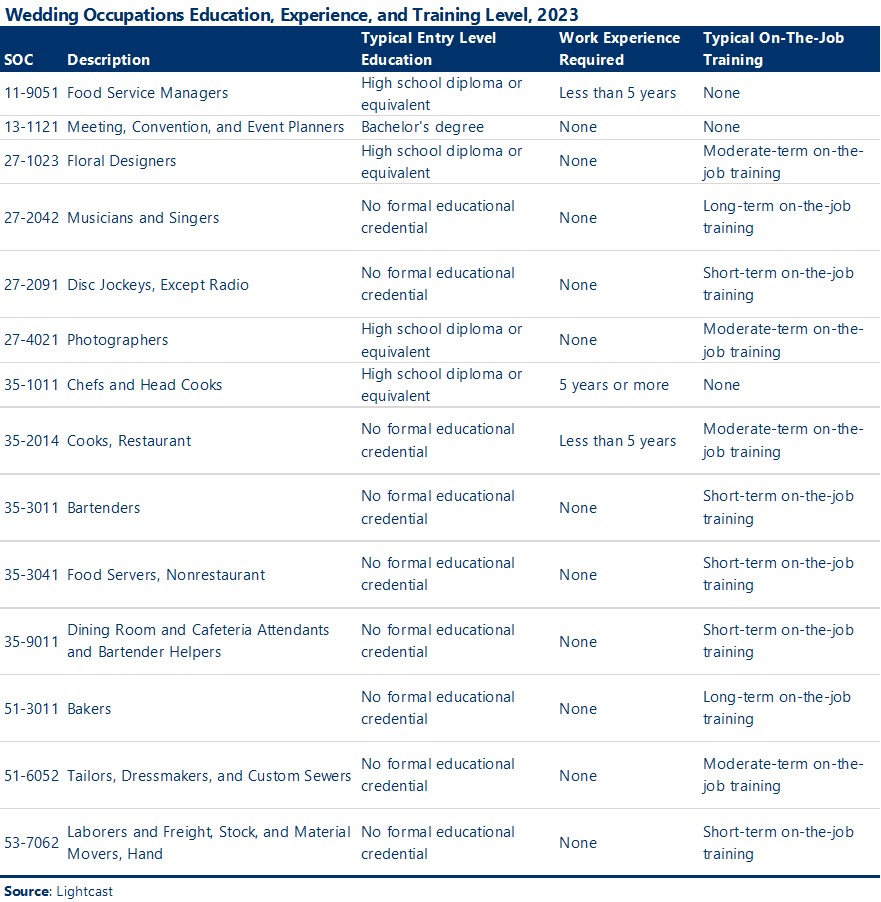
Ultimately, weddings bring people from all over the world together in one place. That place could be your community, and these visitors could create economic opportunities in accommodations, hospitality, and tourism-focused industries.
Connect with wedding planners and venues to supply them with your community’s local tourism magazine, brochure, website, etc. to encourage visitors to stay longer and experience your community when they are not attending wedding activities.
If you are interested in discussing workforce development, industry analysis, and supporting budding entrepreneurs, please contact me at Tori@camoinassociates.com.




